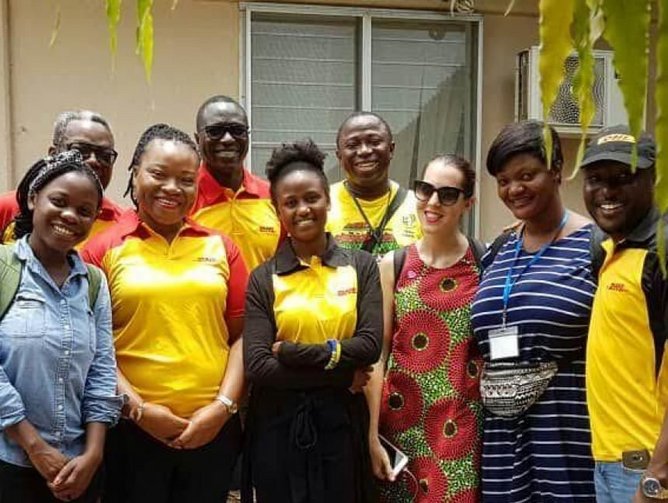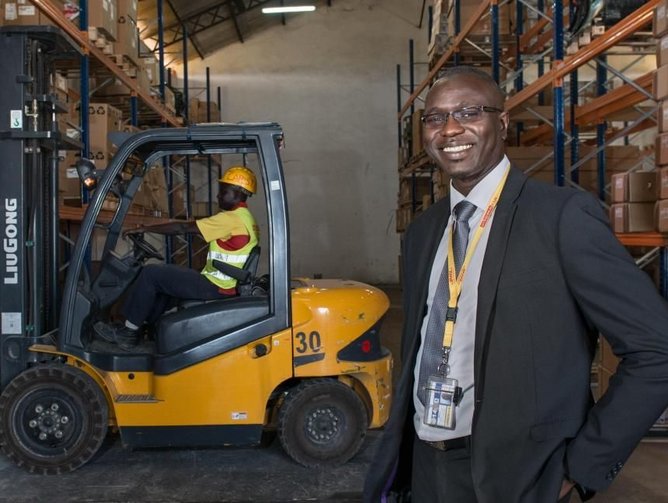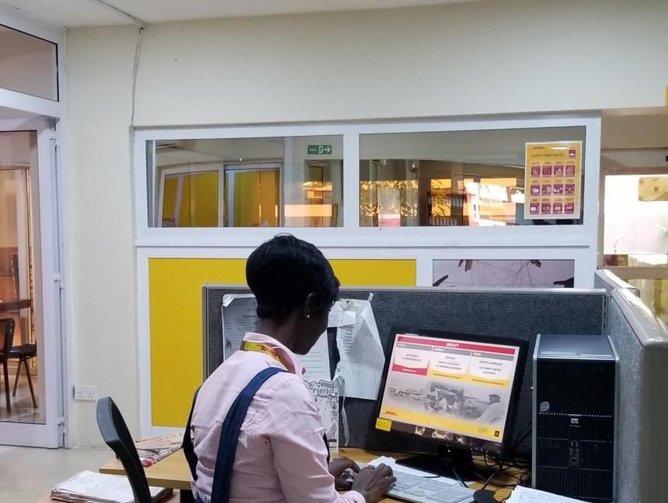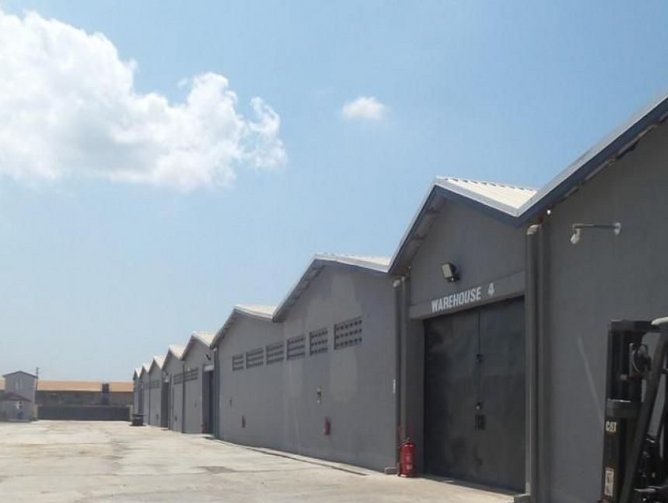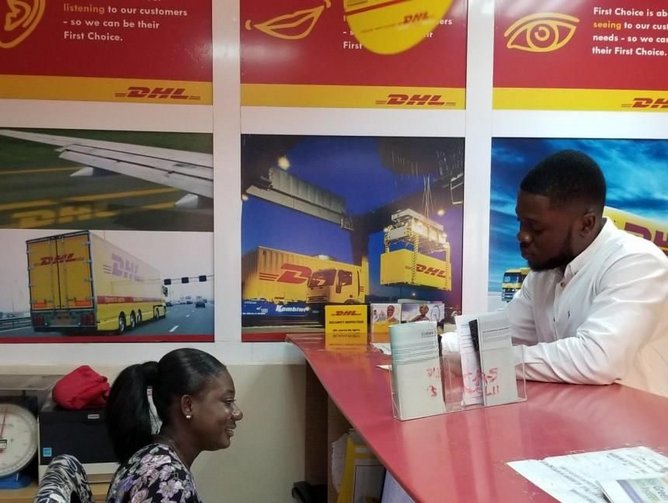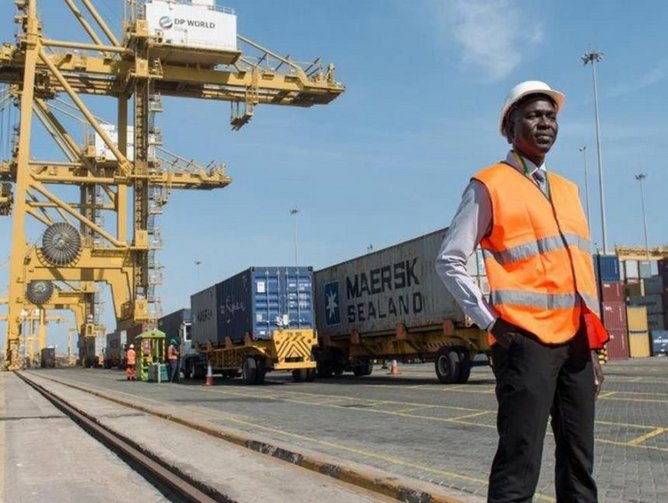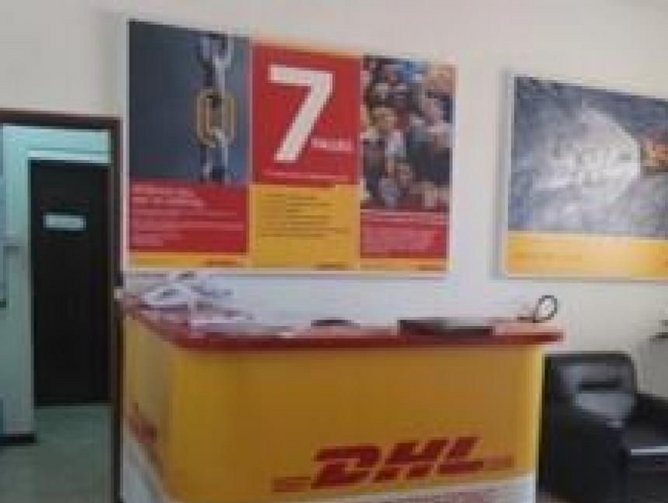How DHL Global Forwarding has remained the Ghanaian market’s logistics provider of choice
Since the 19th century, the logistics industry has undergone significant transformation. Technology has influenced the way in which we order, transport and store various goods, leading consumers to demand the ability to receive products solely at the click of a button.
Since its inception in the late 1960s, DHL, (named after its founders Adrian Dalsey, Larry Hillblom and Robert Lynn), has undergone rapid global expansion, transforming consumer expectations.
With an unfaltering promise to deliver goods anytime, anywhere, the company’s core values – passion, entrepreneurship, excellence and teamwork – fully underpin its customer-centric approach across its operations.
With group revenues exceeding €55bn ($64.3bn), its entrance into the Ghanaian market in the 1970s led the company to undertake considerable growth. Now spanning over 200 countries, DHL Global Forwarding Ghana (DGF), seated under DHL’s umbrella, has been central to its cross-trade shipment capabilities.
Providing charter solutions for oversize, heavyweight cargo, dangerous goods, perishables and valuables, the division delivers essential freight services across land, road and ocean to all 10 regions in Ghana, collaborating across its business units, from DHL Express and DHL Global Forwarding (DGF), to deliver integrated logistics solutions.
Working in various roles under the company’s extensive portfolio, Country Head at DHL DGF and Cluster Head for Ghana, Cote d’Ivoire and Senegal, Serigne Ndanck Mbaye, explains how he has brought the company’s strategy to life to boost DGF’s visibility and bolster financial revenue.
“I started with DHL Express under several management positions in several countries. I’ve been promoted by DGF as the Country Head for our Senegal Company in 2011. It was loss-making at that time, but with our team we were able to turn around the business within a year and stay profitable, achieving our key targets throughout the years,” he says.
“Within our environment where succession planning is a reality, it makes sense for me to also grow in terms of responsibility in a bigger market and sub-cluster. There are many untapped opportunities that we are focusing on in the region, particularly with commodities and perishables which need our expertise in this part of the world and has not been under focus up until recently.”
Technological capabilities
To support its considerable growth, DGF continues to invest in new technologies to enhance its solutions and remain the global logistics leader as part of its core IT renewal roadmap.
“Automation is part of the game and throughout the years DGF has introduced state-of-the-art technologies,” explains Mbaye.
“Distribution is a key element across the company’s international supply chain. We have a manager in charge of not only quality and HSE requirements, but also cost and lead time targets. Visibility is key and our vehicles are equipped with tracking devices and drivers with tools which provide real-time visibility on the shipment progress. We also have reporting platforms to assess performance and develop action platform when required.
“Updating shipment processes are now undertaken in real-time through our ESP solution via GPRS data transfer. Increased visibility, where we can see action happening in the field, as well as proof of delivery where customers sign on the screen, are all integrated in the reporting and tracking with the GPS location, which supports delivery, pictures, and exception management. Any document related to the shipment either transport, commercial and regulatory is also supported by our front-end solution which ultimately eases the life of our customers. We are truly at the forefront of digitalisation and logistics innovation,” he continues.
“We also have a competitive advantage through DHL Interactive, which is our front-end tool that offers end-to-end shipment visibility. Customers can access its three functionalities: booking online, tracking the shipment process and customised reporting, which is automated based on customer requirements.”
Additionally, housing a fully scalable warehouse management system, as well as an app to track shipments, the company is not one to rest on its laurels. From a sustainable viewpoint, DGF has also implemented a paperless solution by installing its electronic document management tool. This has enabled documents to be dematerialised, as part of its Go Green Initiative to reduce harmful emissions.
Supporting local communities
Whilst the business promotes partnerships with local companies which are trained in data management, tools and logistics, DGF also outsources a number of its services, such as haulage. Although it retains a fleet for specific needs, local selected and trained companies are routinely harnessed to support local communities.
To give back to local communities, DHL GF Ghana since 2011, supports Operation Smile, which conducts medical programmes across Ghana in cities including Accra, Cape Coast, Tamale, and Tema for children and adults born with cleft lips.
The Partnership started in 2011 with DGF Ghana giving free logistics solutions from Accra (capital city) to the various medical stations in the country). In 2018 for the first time DGF Ghana took a trip down to Ho Regional Hospital to interact with the Operation Smile Team, Volunteers and Parents to further understand how DHL's support is improving lives and adding value. There were more than 250 patients from all over Ghana for screening for the surgeries.
Furthermore, internally, DGF seeks to improve existing processes to drive quality of service. Its Employee Opinion Survey (EOS) initiative, as well as its Employee Net Promoter Scores (ENPS) are essential in hearing the voice of employees, developing key action plans and enhancing active leadership and engagement at the company.
“We invest in our eLearning platform with mandatory compliance courses, as well as many more recommended courses for the personal development of employees. We also develop regional programmes, such as Build your Skills, Women to the Top, and our leadership programmes, TELP, TEC LP and much more,” observes Mbaye.
“All these courses count for just 10% of the training and development of staff. We believe that our people learn more through on the job assignments and projects, and 70% on day to day activities, as DHL is a continuous working environment. This is a company where performance and behaviours are recognised and rewarded.”
With globally dedicated teams in a number of different industry sectors, DGF seeks to deliver a comprehensive portfolio of integrated, end-to-end products and solutions geared to meet the needs of its customers.
“There are still opportunities where we are already providing logistics solutions where we can still grow our market share,” notes Mbaye.
“We are an international company that houses a global network with local expertise. We are fully compliant, deliver on our promises, and have essential programmes which help us give back to communities. We are consistently improving with our innovation centre and most importantly, we are truly customer-centric.”
